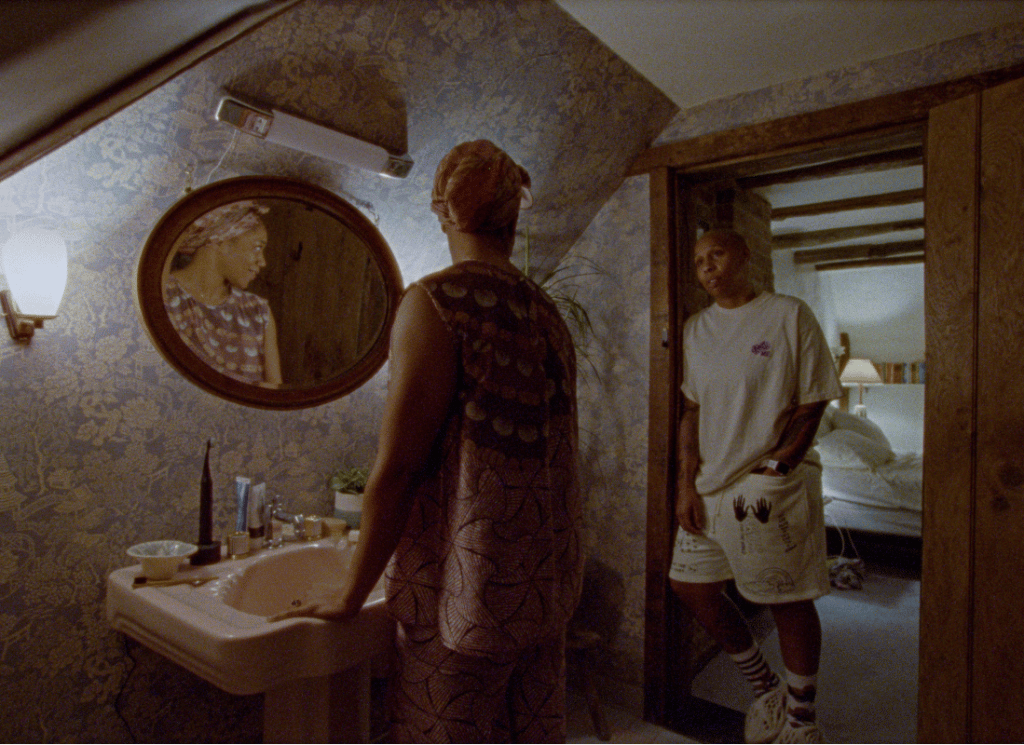Read also:
How to Watch FX Live Without CableHow To Watch AMC Without CableHow to Watch ABC Without CableHow to Watch Paramount Network Without CableAziz Ansari focuses his efforts behind the camera for his dramedy, making for a refreshing collaboration with Lena Waithe.
After a four-year absence, Master of None returns to Netflix with a new tone and new focus, but it still grapples with the same emotional beats of the first two seasons. This time around, creator Aziz Ansari focuses his efforts behind the camera, only appearing in two brief cameos in season three’s five-episode arc. Instead, all of the action is focused on Denise (Lena Waithe) and her partner Alicia (Naomi Ackie), who are rusticating in a cottagecore fantasy that not even TikTok could call sustainable. Rather than the buzz of traffic and the cramped quarters of the city, we see Denise and Alicia’s relationship develop against the bucolic splendor of open fields and towering trees.
The shift in tone suits where Denise is at this point in her life, a 30-something thrust into success after a bestselling debut novel. She’s newly married and trying for a family. Denise’s fears about parenthood, marriage, and the ephemeral nature of success are painted on through the first episode in soft, subtle strokes like watercolor, peeking through all her other layers. Waithe, who co-wrote the season with Ansari, appears to have put a lot of herself into the script. It shows in the care she puts behind her performance.

What’s always set Master of None apart from other rom-com/dramedy series is how straightforward it’s been in portraying young adult life as someone from a marginalized group. Season three doubles down on this mission. Dev may have been a minority, but he was still a straight man. Seeing the world through Denise and Alicia’s eyes, on the other hand, is a breath of fresh air for a show where the protagonist’s love life could be uncomfortably stale. Here, the season lets us see what it’s like to live as a queer woman of color: eating breakfast, folding laundry, laughing, fighting, living.
But while some shows never quite find their stride between what’s actually queer and what straight writers think is queer, Waithe and Ackie strike a beautiful balance between the lovely highs, the mundane middles, and the emotional low points. The fourth episode, focusing mainly on Alicia, is as close as this season comes to any kind of messaging when Alicia discovers that insurance companies have billing codes for “attacked by orca” but none for “queer women seeks motherhood.” It could come across as a Very Special Episode, but the whip-smart writing dodges all of that.
Waithe and Ackie strike a beautiful balance between the lovely highs, the mundane middles, and the emotional low points.
Motherhood is a big focus in these five episodes, both the desire for a family and the fear that comes with taking such a big step. Denise is still trying to find her footing in adulthood and the sudden changes in both her personal and professional lives, a balance that makes it all even more intimidating. She only just came out to her mother in season two’s standout episode “Thanksgiving,” so the prospect of starting a family so soon after that reconciliation is understandably daunting. Add to that Alicia’s struggles with fertility, and it throws all of that beautiful, natural setting into something fraught and tense.
If audiences struggle with the shift in tone for the season, they ought to stick around for the last episode. It beautifully tests the boundaries of how we perceive and understand love—how it changes and grows, contracting and expanding like a living organism. Ultimately, the season finds an oddly comforting note to end on, giving the knowledge that even though things don’t turn out the way we want or expect them to, love can still thrive through the worst life throws at us.
Master of None season 3 premieres on Netflix this Sunday, May 23.